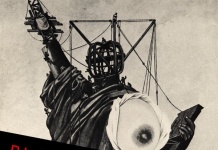 As reported in The Guardian, the UK and U.S. poetry communities have been seriously upset by a fresh case of plagiarism unearthed online, when British career poet David R. Morgan was found to have copied work from American poet Charles O. Hartman and many others, including apparently Roger McGough.
As reported in The Guardian, the UK and U.S. poetry communities have been seriously upset by a fresh case of plagiarism unearthed online, when British career poet David R. Morgan was found to have copied work from American poet Charles O. Hartman and many others, including apparently Roger McGough.
Internet postings of the verse were crucial to the exposure. The Guardian article quotes Northumbria-based poet Ira Lightman, who did much of the online detective work, at length on the value of uploading poetry for cross-comparison. “Put it all online,” he told me. “Everyone will be checking for plagiarism soon.”
Why plagiarize poetry? Perhaps career reasons? Morgan “has been an arts worker and literature officer, organizer of Book Festivals and writer-in-residence for education authorities, a prison and a psychiatric hospital (which was the subject of a Channel 4 film),” according to his Bedfordshire local authors biodata. “He has had two plays broadcast on ITV.”
Not much of a life, perhaps, but it is for some. And now, presumably, it is over. Morgan’s publisher Poetry Space has suspended sales of both of his collections. “David has freely admitted that he has plagiarised the work of other poets and that this is inexcusable. He wishes to apologise to all concerned,” says Poetry Space. “Poetry Space had no way of knowing that some of the material did not belong to David—it was published in good faith.”
As to the worry that widespread dissemination of poetry online could actually foster plagiarism, Lightman says: “It’s our current culture of the single poem that has made plagiarism easier, and lack of interest in the poet and the poetic. Not the Internet.”
What makes the whole episode even more sad and bleak is that plagiarism has never been easier to spot. Connoisseurship and criticism may not spot it: Morgan was well praised by poets and critics who apparently spotted nothing suspicious. “A poet with a unique voice grounded in surreal nature,” Ted Hughes called him, while Sandra Dudley and Bryson Hemingway both said he was “a complete one-off.” But the readers and often the original texts themselves are out there now, linked together, allowing instant cross-comparison and disclosure.
“Now it is so much easier for all of us to know what’s going on at the same time,” says poet Bobby Parker in The Guardian‘s article. “People talk about plagiarism a lot more—it’s widespread within a day of somebody posting something and lots of people start looking into it.”
A plagiarist in these conditions is risking themself as never before: And for what?
“The psychology of plagiarism is fascinatingly perverse,” remarks the Scottish Poetry Library, quoting Martin Amis, himself a victim. “It risks, or invites, a deep shame and must have something of the death wish in it.” Indeed.
































